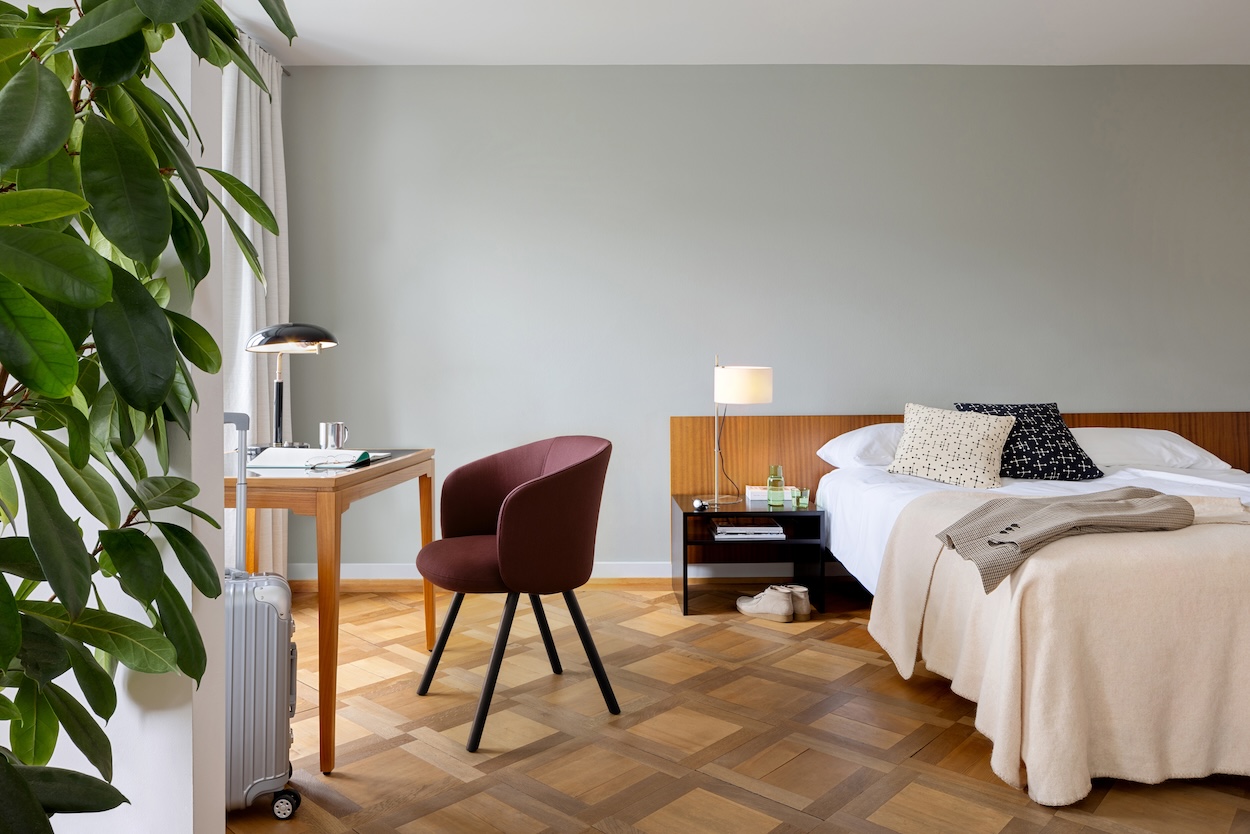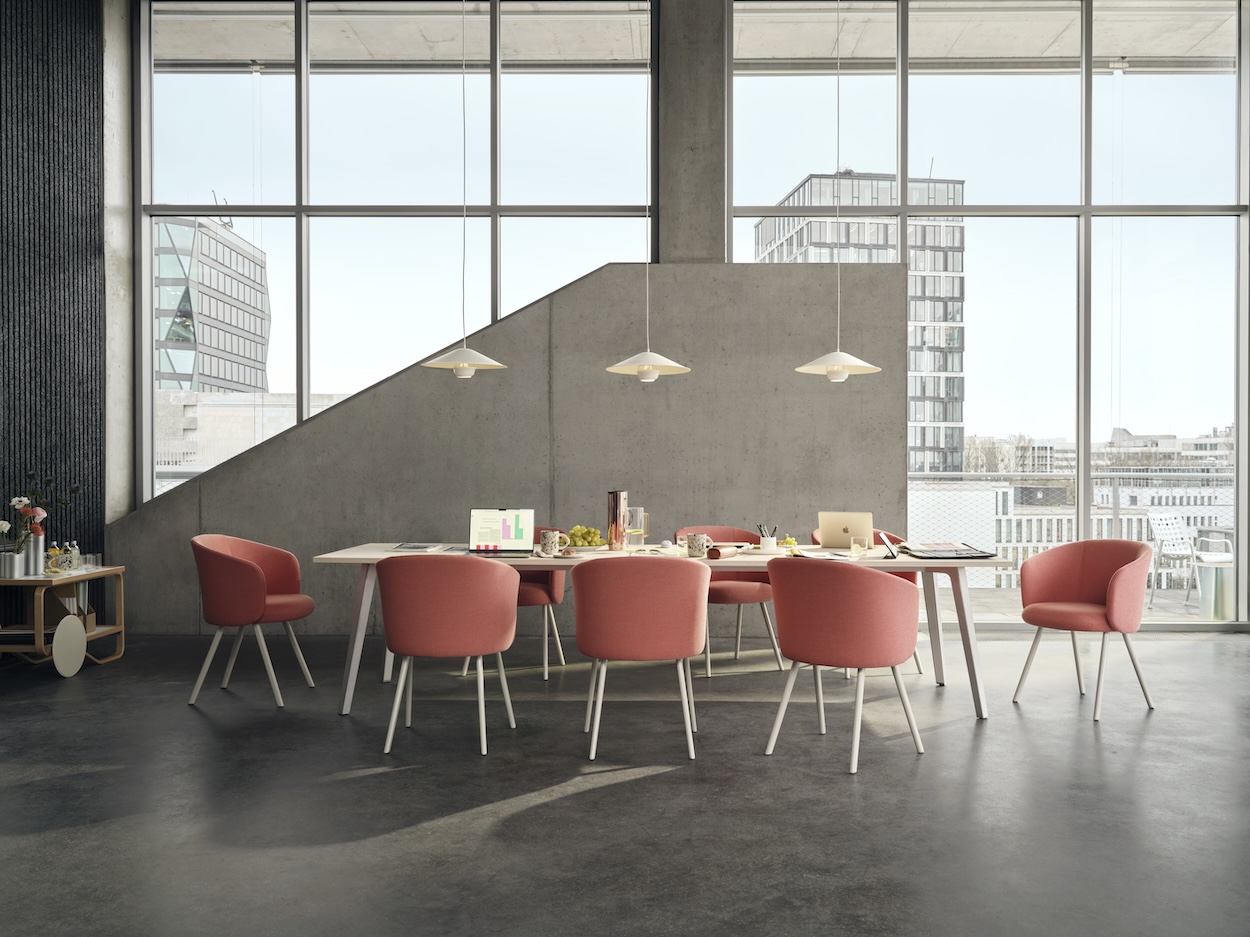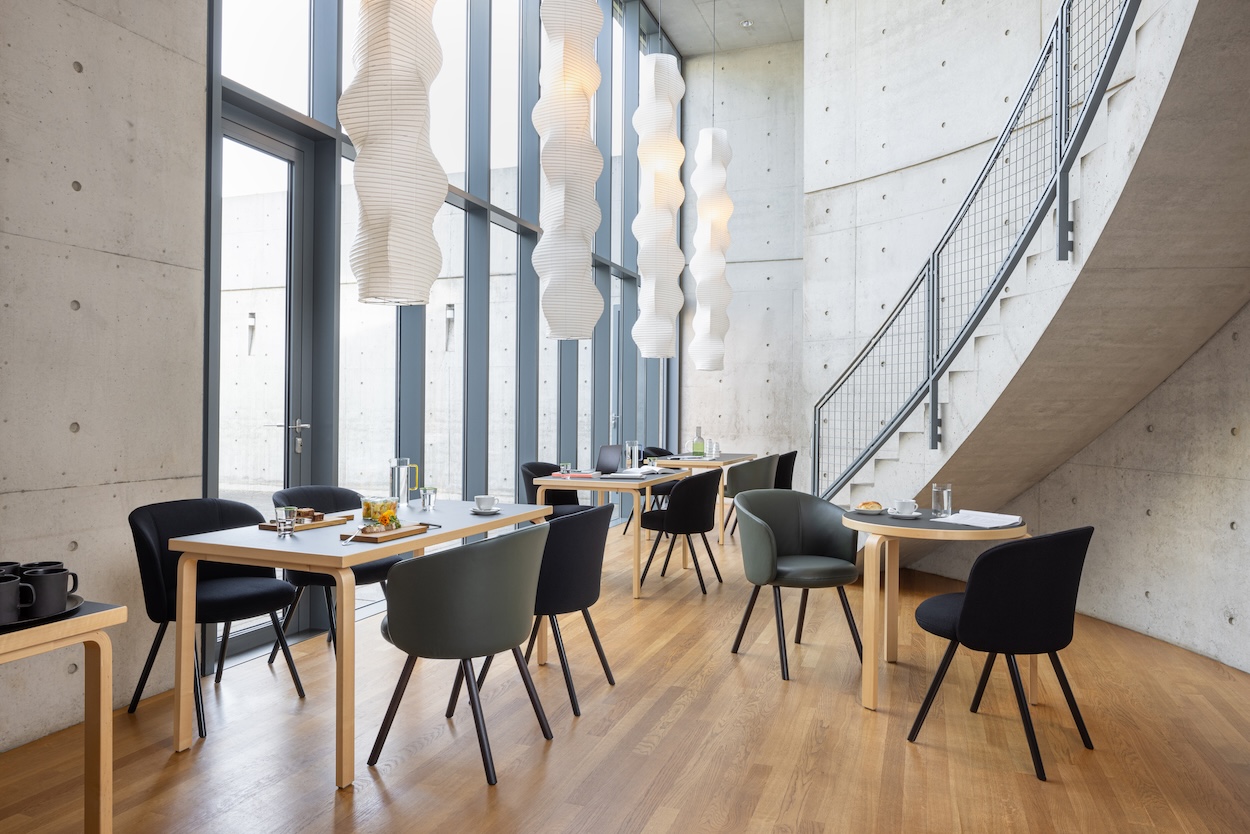Take it from these editors: it’s shockingly difficult to find seating suited to reading, dining, and working, that doesn’t look fussily ergonomic yet responds to the body’s pattern of movement. Even a seemingly sedentary body shifts, flexes, and stretches innumerable times over every chapter read or round of drinks and bites shared among friends. That’s where Vitra’s Mikado chair comes in. The new-to-market perch from London product design studio Barber & Osgerby “evokes the image of cushions floating on elegant legs,” the duo says. It’s surprisingly customizable and features a stealthy reclining backrest for an optimal balance between comfort and aesthetics.
Anyone who closely follows Vitra will know that modularity has been a common thread in its recent debuts, and Mikado is no exception. Options for die-cast aluminum or wooden legs, along with leather, bouclé, tweed, and woven wool upholstery present endless possibilities for customization and are a crucial sustainability component. In essence, the chair is future-proof: “Mikado was designed with sustainability as its guiding principle,” the duo says, nodding to the chair’s many components that can be replaced or exchanged. “The covers aren’t glued and can be removed to facilitate cleaning or replacement, and its legs can be individually replaced or exchanged for a different version.” These interchangeable components also lend the chair its name, which it shares with European pick-up sticks.
Of course, plenty of chairs on the market look good, but Barber and Osgerby’s self-described “ingenious” reclining mechanism is a game changer. “Who wants to sit still forever?” the duo says. “We are human, and we need to be able to move to concentrate.” Can you put a price on something that so effortlessly works? Sure, Vitra has, but its value is beyond measure.




